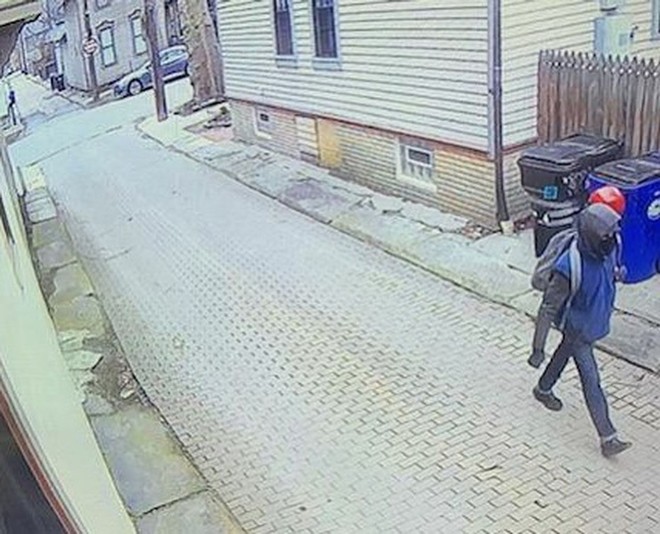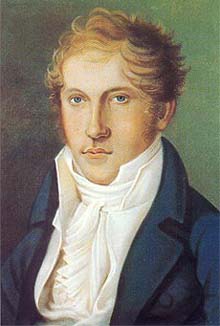by Jarrett Hoffman

•ChamberFest and Chamber Music Society come together tonight
•An update on the theft of Berta Rojas’ guitar (pictured: surveillance footage of the suspect)
•In memoriam Anne Parsons, and news about Anna Netrebko
•Louis Spohr: his useful inventions, his clarinet concertos, and a boastful passage in his autobiography
HAPPENING TODAY:
Two like-minded organizations discovered that their audiences didn’t in fact overlap all that much. So they decided to put on an event together.
ChamberFest Cleveland and the Cleveland Chamber Music Society will unite this evening at 7:30 pm at the Maltz Performing Arts Center. The program features the Dover Quartet along with clarinetist Franklin Cohen, violinist Diana Cohen, and pianist Roman Rabinovich in music by Mozart, Ravel, and Ernest Chausson.
Read Mike Telin’s preview article, and get tickets here.
ROJAS GUITAR UPDATE:
The person who is suspected of stealing the instrument of Paraguayan guitarist Berta Rojas was seen in surveillance footage from cameras at St. Ignatius High School. The suspect is shown on Carroll Court, blocks from the site of the theft at 3120 Bridge Avenue on Friday afternoon.
A reward of $1000 is being offered. Call the Cleveland police at 216-621-1234 if you have information.
In town for her Cleveland debut Saturday evening on the Cleveland Classical Guitar Society’s International Series, Rojas was able to borrow an instrument from CIM faculty guitarist Colin Davin for the performance. Her own guitar, nicknamed “La Rojita,” was made by Irish luthier Michael O’Leary in 2008, and was stored in a bright red case.
“To the person who just stole my guitar in Cleveland: please, return it back to me,” Rojas wrote on her Twitter over the weekend. “To you it is only a guitar; to me it is part of my life. It brings joy, peace and happiness to the world. Please return it somewhere where it can be found. I won’t press charges if you return it.”
INTERESTING READS:
Yesterday in The New York Times, Javier C. Hernández paid homage to the late Anne Parsons, “who as president and chief executive revitalized the Detroit Symphony Orchestra in the aftermath of a bitter strike, using education and technology to attract new audiences…” Parsons passed away on March 28 at age 64.
It’s also worth catching up on a Hernández piece from a few days ago about an opera singer who has been particularly visible in the news over the last month. “The star soprano Anna Netrebko lost work in the West over her ties to the Russian president,” the article’s subhead reads. “Now, following an about-face, she has been called a traitor at home.”
TODAY’S ALMANAC:

Despite playing and teaching the violin, and composing so frequently for it, Spohr is best-known today for his clarinet concertos. All four were written for Johann Simon Hermstedt, a court musician and the wind band director under the Duke of Schwarzburg-Sondershausen (to whom Hermstedt also taught the clarinet).
An interesting passage in Spohr’s autobiography shows the composer first praising Hermstedt, then seemingly also taking credit for the success of his friend and colleague. Spohr begins by referencing the Duke’s commissioning of the first concerto (played here by soloist Maria du Toit, the Cape Philharmonic, and conductor Arjan Tien).
To this proposal I gladly assented, as from the immense execution, together with the brilliancy of tone, and purity of intonation possessed by Hermstedt, I felt at full liberty to give the reins to my fancy. After, that with Hermstedt’s assistance I had made myself somewhat acquainted with the technics of the instrument, I went zealously to work, and completed it in a few weeks. Thus originated the Concerto…with which Hermstedt achieved so much success in his artistic tours, that it may be affirmed he is chiefly indebted to that for his fame.
Now hold on just a minute there, Mr. Spohr. As Pamela Weston explains in Clarinet Virtuosi of the Past, the Duke’s appreciation for Hermstedt was such that he might easily have commissioned some other composer — of equal renown — if things didn’t work out with Spohr.
So the moral of the story is: puff yourself up in your autobiography at the risk of getting zinged somewhere down the line.



